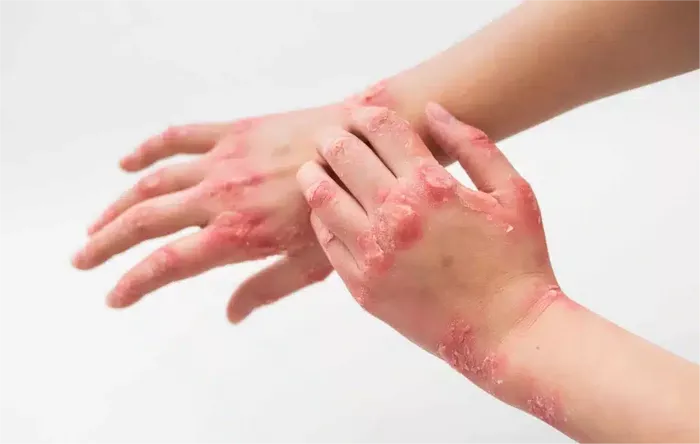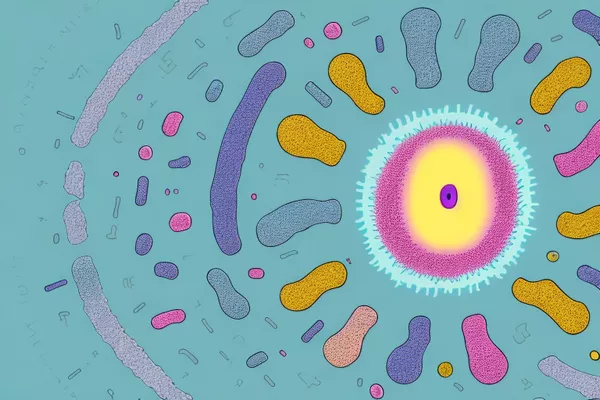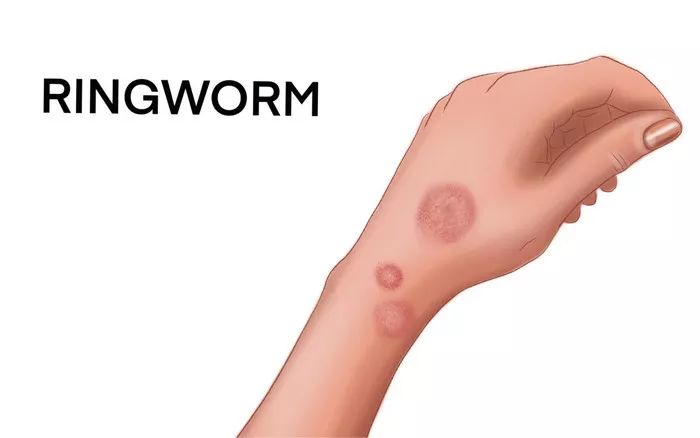Ringworm is a common fungal infection that affects the skin, hair, and nails. Despite its name, it has nothing to do with worms. Instead, it is caused by a group of fungi called dermatophytes. The infection gets its name because it typically forms a circular or ring-shaped rash. While ringworm is not a serious medical condition, it can be bothersome and may require treatment. Many people wonder if ringworm ever fully goes away or if it can return. In this article, we will explore the causes, symptoms, treatment options, and whether or not ringworm can completely disappear.
What Is Ringworm?
Ringworm is a superficial skin infection caused by fungi that thrive on the outer layers of your skin. The fungi responsible for ringworm are called dermatophytes, and they feed on keratin, a protein found in your skin, hair, and nails. These fungi can live on both human and animal skin, as well as on surfaces like towels, clothing, and bedding.
Ringworm can affect different parts of the body, and it may look slightly different depending on the area it affects. For example:
Tinea corporis: Ringworm on the body, often in a circular or ring-like shape.
Tinea pedis: Ringworm on the feet, also known as athlete’s foot.
Tinea cruris: Ringworm in the groin area, also known as jock itch.
Tinea capitis: Ringworm on the scalp.
Tinea unguium: Ringworm on the nails.
How Do You Get Ringworm?
Ringworm is contagious, which means it can spread from person to person, animal to person, or through contaminated surfaces. The most common ways you can contract ringworm include:
Direct contact with an infected person: This is the most common way to catch ringworm. Touching the skin or hair of someone who has the infection can transfer the fungus.
Contact with infected animals: Pets, particularly cats and dogs, can carry the fungus, especially if they have ringworm on their fur or skin.
Contact with contaminated objects or surfaces: Fungi can survive on surfaces like towels, gym equipment, and bedding. Sharing personal items, such as shoes or combs, with an infected person can spread the fungus.
Warm, moist environments: Dermatophytes thrive in warm, moist areas, making places like locker rooms, swimming pools, and public showers prime locations for infection.
Symptoms of Ringworm
The most obvious sign of ringworm is the appearance of a ring-like rash on the skin. However, the symptoms can vary depending on the location of the infection. Common symptoms include:
Circular rash: The rash typically has a red, raised border and clear or slightly scaly skin in the center. This is why the infection is often referred to as “ringworm.”
Itching: Ringworm can be very itchy, which may lead to scratching that can further irritate the skin.
Scaling and peeling: The skin may become dry, flaky, or scaly, particularly at the edges of the ring.
Hair loss: If ringworm affects the scalp, it can cause patches of hair to fall out.
Blisters or pustules: In some cases, ringworm can cause small blisters or pus-filled bumps to form on the skin.
Does Ringworm Go Away on Its Own?
In some cases, ringworm may go away on its own without treatment, especially if it is mild and confined to a small area of skin. However, this is not the norm, and most cases of ringworm require treatment to fully resolve. Without treatment, ringworm can persist and even spread to other areas of the body.
Although the body’s immune system can fight off the infection to some degree, ringworm tends to persist unless actively treated. It is important to treat the infection promptly to reduce the risk of complications, such as spreading it to others or causing permanent skin damage.
How Long Does Ringworm Last?
The duration of a ringworm infection can vary depending on several factors, including the severity of the infection, the area affected, and the type of treatment used. If left untreated, ringworm can last for several weeks or even months. However, with appropriate treatment, most people begin to see improvement within a week or two. Full resolution of the infection can take anywhere from 2 to 4 weeks, depending on the treatment.
If ringworm is not treated correctly or if the treatment is not continued for the full prescribed duration, the infection may come back. This is one reason why it is important to follow the treatment plan as directed by a healthcare provider.
Treatment Options for Ringworm
There are several effective treatments for ringworm, and the choice of treatment depends on the severity of the infection and the area of the body affected. Most cases of ringworm can be treated with antifungal medications, which come in several forms, including creams, ointments, and oral medications.
Topical Antifungal Creams and Ointments
For mild cases of ringworm, topical antifungal treatments are typically the first line of treatment. These medications are applied directly to the affected area of the skin and work by killing the fungus or preventing it from growing.
Some common topical antifungal treatments include:
- Clotrimazole (Lotrimin)
- Miconazole (Desenex)
- Terbinafine (Lamisil)
- Ketoconazole (Nizoral)
Topical treatments should be applied to the affected area for the recommended duration, usually 2 to 4 weeks, even if the rash begins to improve before that time. This is important to ensure that the infection is completely eradicated.
Oral Antifungal Medications
If the infection is severe, widespread, or located on the scalp or nails, oral antifungal medications may be necessary. Oral medications help treat deeper or more persistent infections that do not respond to topical treatments. Common oral antifungal medications include:
- Griseofulvin
- Terbinafine
- Itraconazole
Oral antifungal medications typically require a prescription, and the length of treatment may range from a few weeks to a couple of months, depending on the severity and location of the infection.
Home Remedies and Supportive Care
In addition to antifungal treatments, some people find relief from ringworm symptoms by using home remedies or making certain lifestyle changes. While these remedies may not cure the infection on their own, they may help reduce itching and irritation:
Tea tree oil: Known for its antifungal properties, tea tree oil can be applied to the affected area to help reduce symptoms.
Aloe vera: Aloe vera gel can soothe the skin and reduce inflammation, although it does not directly treat the infection.
Keep the area clean and dry: Fungi thrive in moist environments, so keeping the affected area clean and dry can help prevent the infection from spreading or worsening.
Can Ringworm Come Back?
Yes, ringworm can come back. Even after completing a full course of treatment, it is possible for the infection to return, especially if the fungus was not fully eradicated. There are a few reasons why ringworm may return:
Incomplete treatment: If the treatment is stopped too soon, the fungus may not be completely eliminated, leading to a relapse.
Reinfection: Ringworm is highly contagious, so you may be re-exposed to the fungus if you come into contact with an infected person, animal, or contaminated surface.
Weak immune system: People with weakened immune systems, such as those with diabetes or HIV, may be more susceptible to recurrent infections.
Preventing Ringworm
While it is not always possible to completely prevent ringworm, there are steps you can take to reduce the risk of getting or spreading the infection:
Avoid direct contact with infected individuals or animals: If you know someone has ringworm, avoid touching their skin or sharing personal items.
Practice good hygiene: Wash your hands regularly, and shower after activities like exercise or swimming.
Keep your skin clean and dry: Fungi thrive in warm, moist environments, so try to keep your skin dry, especially in areas like the feet, groin, and armpits.
Disinfect shared surfaces: If you visit public places like gyms or swimming pools, be sure to disinfect surfaces like gym equipment or benches before using them.
Wear breathable clothing: Choose clothing made of natural fibers like cotton, which allow your skin to breathe.
Conclusion
In most cases, ringworm can be fully treated with antifungal medications, and it typically goes away within a few weeks. However, it is important to follow the treatment plan carefully and take steps to prevent reinfection. While ringworm can return, practicing good hygiene and avoiding exposure to contaminated environments can help reduce the risk. If you have concerns about ringworm or if it does not respond to treatment, it is always a good idea to consult a healthcare professional for further guidance. With the right care, ringworm can be effectively managed, and your skin can heal completely.
Related topics
























